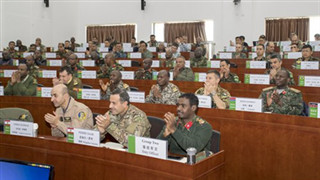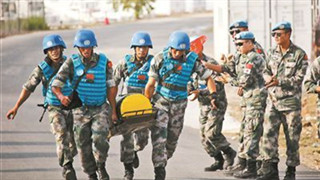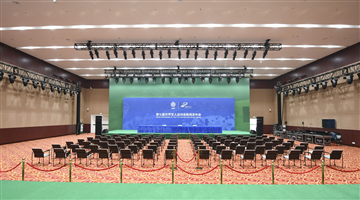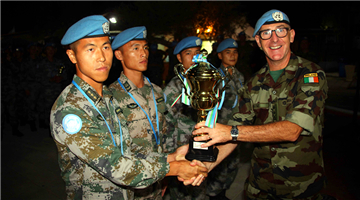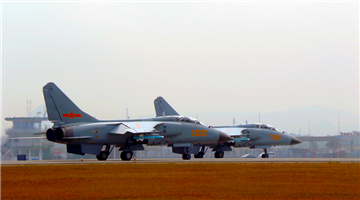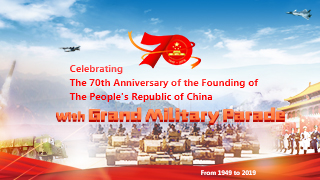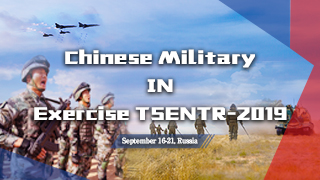By Zou Zhiqiang
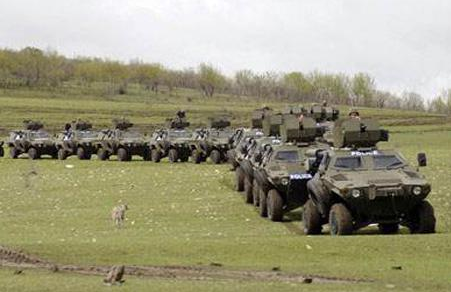
Turkey, Azerbaijan and Georgia kicked off their joint military exercises code-named "Caucasian Eagle 2019" in Azerbaijan’s capital city Baku on September 23. Special operations forces from the three countries carried out destruction of imaginary targets from air, rescue of hostages, evacuation of injured personnel and other joint subjects.
This wasn’t the first time that the three countries held joint military exercises, as a continuation of the Caucasian Eagle 2017 they held in Georgia. Actually Turkey and Azerbaijan have had frequent joint military exercises of various scales almost every year, such as the recent joint air force drill code-named Turkey-Azerbaijan Eagle 2019.
Such frequent military exercises among the three countries are attributed to the evolution of the situation in the South Caucasian region after the Cold War and the intense interference and game of major countries outside the region.
After the collapse of the Soviet Union, three new independent nations emerged in South Caucasus, namely Georgia, Armenia and Azerbaijan, all having territorial disputes and conflicts either with each other or with surrounding countries to varying degrees. The conflict between Azerbaijan and Armenia in Nagorno-Karabakh region has lasted for about 30 years since it broke out on the eve of the bloc’s collapse, and they also had armed conflicts in 2016, with the former receiving staunch support from Turkey while the latter being supported by Russia. Georgia is in great and consistent tension with Russia over territorial issues and the two sides had head-on military conflicts in 2008. During all these occurrences, the three South Caucasian countries have taken the initiative to bring in external forces such as the US, EU and Turkey, hoping to maintain their independence and security in the complicated geopolitical environment.
Turkey has always taken the South Caucasus and the Caspian Sea as one of the priorities in its major-country diplomacy, and its bilateral and multilateral relations with Azerbaijan and Georgia have been on the rise due to its strategic and cooperation demand in security, energy and transportation. After their foreign ministers announced to step up cooperation in 2012, the three countries have institutionalized the cooperation, jointly built oil and gas pipelines and railway projects connecting the three of them, and cleared the western route to export Caspian Sea’s energy. This not only elevates their cooperation, but also has a major bearing on regional geopolitics. What’s worth special attention is their military cooperation. Defense ministers and military officials have regular meetings, multiple joint military exercises have been held, and they stress the importance of improving the equipment for their armed forces in order to safeguard territorial integrity and sovereign boundary and keep their oil and gas pipelines safe.
Both from a historical and realistic point of view, major countries outside of the region have always been a deep-rooted factor that affects Turkey’s relation with the three South Caucasian countries. The historical grudge, realistic conflicts and intense game with Russia has pushed Turkey to strengthen the security cooperation with Georgia and Azerbaijan. The three of them have historical and realistic motivation for mutual support and are supported by America and Europe. The EU and NATO have consistently been trying to rope in South Caucasus by mediating regional conflicts, providing military aid, forging partnerships and holding joint exercises, while Turkey, being a NATO member, has spearheaded on this front thanks to western support and its own “major power” ambition. Both Azerbaijan and Georgia are either partners or associated countries of NATO and the EU, and Europe-Atlantic has long been the main direction of their national development.
In recent years, the three countries have signed several cooperation agreements to enhance their military capability and carry out military cooperation with NATO standards. Against such a background, two camps have been formed in the Caucasian region - the west-backed camp comprising Turkey, Azerbaijan and Georgia, and the other one consisting of Russia, Armenia and Iran. This is why Armenia and Russia have been vigilant against the tripartite military cooperation on the other side and have closely watched the dynamics and influences of their joint military exercises.
In sum, the joint military exercises by Turkey, Azerbaijan and Georgia this time is a demonstration of the long-standing structural contradictions and camp confrontation in the Caucasian region. But despite the constant military moves, none of them would easily stir up a war due to the balance of power in the region, so Russia, which has notable military advantages, doesn’t show any obvious concern. Especially in consideration of Istanbul’s closer security cooperation with Moscow and escalating conflicts with Washington, Turkey will be very cautious in this region that concerns Russia’s core interests for fear of further aggravating the situation.
(The author is an associate researcher at the Middle East Studies Institute of Shanghai International Studies University)
